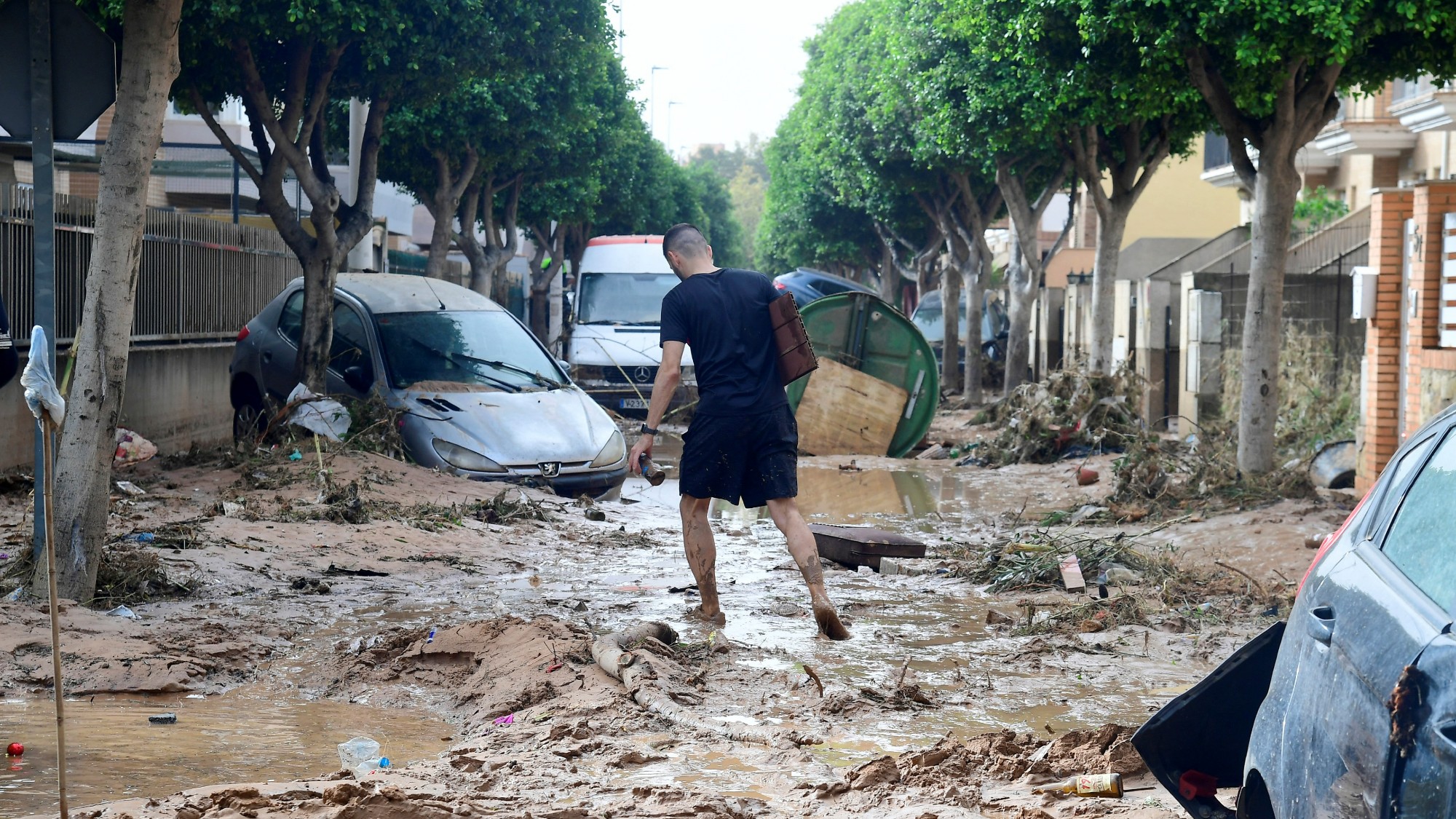Earth's climate is in the era of 'global weirding'
Weather is harder to predict and more extreme


A free daily email with the biggest news stories of the day – and the best features from TheWeek.com
You are now subscribed
Your newsletter sign-up was successful
The world's climate has become more unpredictable, leading experts to coin the term "global weirding." The rising temperatures are creating extreme weather that looks different all across the globe. Some cities have seen contradictory weather phenomena back to back, making recovery difficult. Climate change is only expected to get worse, which is likely to bring more weird weather our way.
What is global weirding?
Global weirding, also called climate weirding, is an alternative term to global warming, which refers to how warming temperatures can cause all kinds of "weird" phenomena that can at times be contradictory. "The rise in average global temperature is going to lead to all sorts of crazy things — from hotter heat spells and droughts in some places, to colder cold spells and more violent storms, more intense flooding, forest fires and species loss in other places," said Thomas Friedman, who popularized the term in a 2007 opinion piece at The New York Times.
As a part of global weirding, many places are experiencing climate whiplash, or extreme opposite weather conditions in the same region. Cities across the globe have experienced "droughts that dry up water sources followed closely by floods that overwhelm infrastructure, destroying sanitation systems and contaminating drinking water," said a new report by WaterAid. Others are experiencing climate reversals. "Places accustomed to heavy rainfall are now facing droughts, while historically arid regions now grapple with unexpected floods."
The Week
Escape your echo chamber. Get the facts behind the news, plus analysis from multiple perspectives.

Sign up for The Week's Free Newsletters
From our morning news briefing to a weekly Good News Newsletter, get the best of The Week delivered directly to your inbox.
From our morning news briefing to a weekly Good News Newsletter, get the best of The Week delivered directly to your inbox.
The result of global weirding and climate whiplash is that extreme weather phenomena are becoming more powerful. "Wherever we look around the world, we see that these weather events are getting supersized by climate change, and they're putting us all at risk," climate scientist Katharine Hayhoe said to Space.com (a sister site of The Week). For example, Los Angeles experienced "two very wet winters" that "produced lots of grass and shrubs," said Sky News. It was then "followed by a long, hot summer that dried out that vegetation, providing abundant, tinder-dry fuel ripe for a wildfire." In turn, the city saw the worst wildfires in its history.
What are the consequences?
The general effects of climate change globally, like temperature changes or sea level rise, have mostly been predictable. The same cannot be said for local conditions. "You can't just assume that every place can have a similar response to atmospheric warming," Michael Singer, a professor at Cardiff University and one of the authors of the WaterAid study, said to Reuters. "It doesn't care who you are, whether you're wealthy or poor or you have great infrastructure or not." This is made all the more difficult because the "lack of historical climate records in some areas may also make it difficult to assess patterns, as these sometimes only span a few decades, and are too sparse to capture local conditions," said SBS News.
Climate whiplash in cities puts many lives at stake. "Many cities already face water supply, sewage and flood protection problems as their populations rapidly swell," said The Guardian. "Global heating supercharges this, with the often aging infrastructure in rich nations designed for a climate that no longer exists, and more climate extremes making the establishment of much-needed infrastructure even harder in low income nations." It is more important than ever to focus on adaptation efforts, especially for vulnerable communities.
A free daily email with the biggest news stories of the day – and the best features from TheWeek.com
Devika Rao has worked as a staff writer at The Week since 2022, covering science, the environment, climate and business. She previously worked as a policy associate for a nonprofit organization advocating for environmental action from a business perspective.
